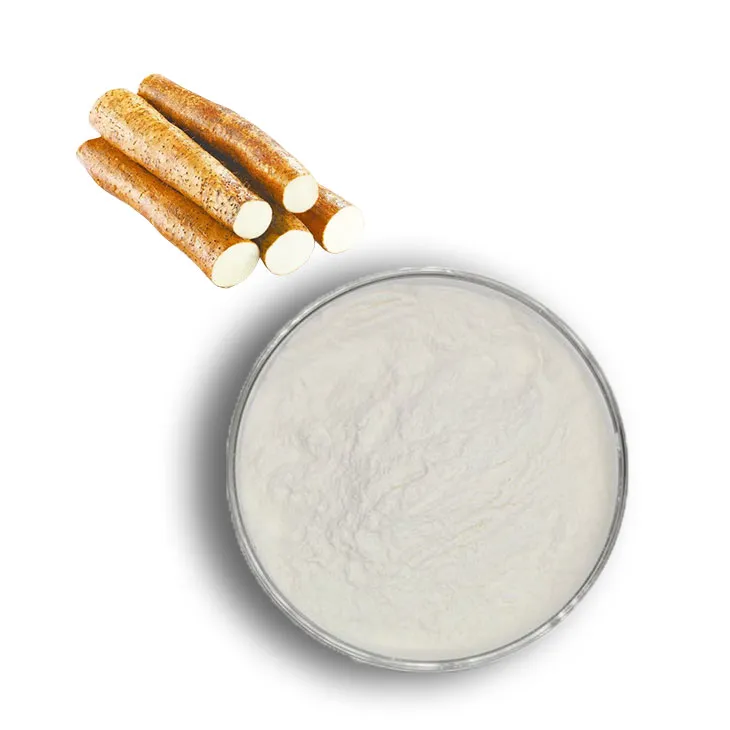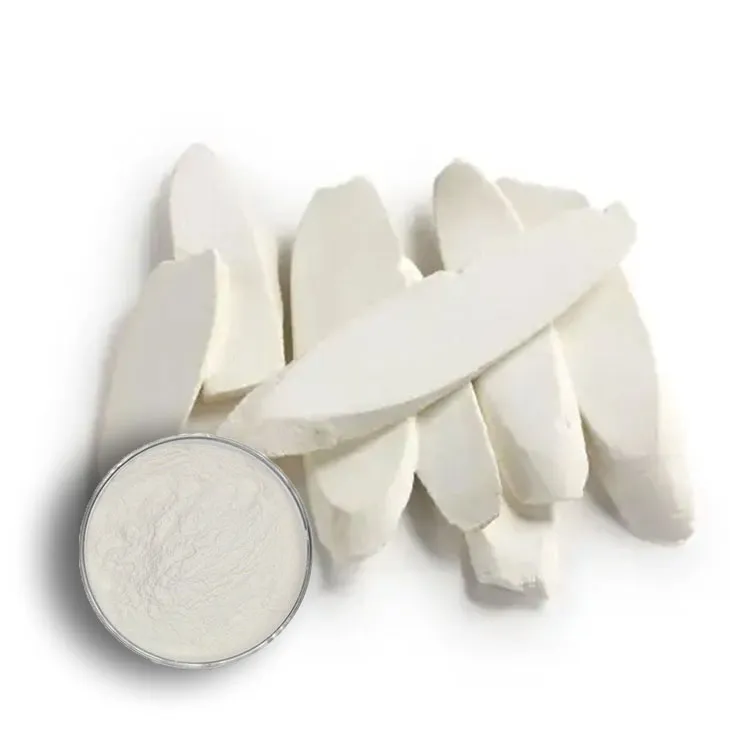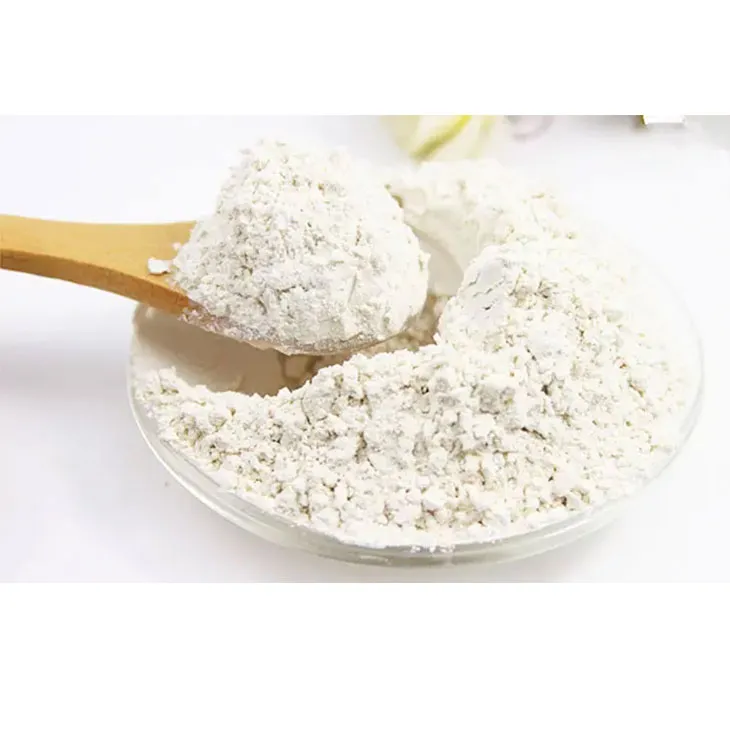- 0086-571-85302990
- sales@greenskybio.com
Active components in yam extract.
2024-11-30

1. Introduction to Yam Extract
Yam Extract has been a subject of increasing research due to its potential health benefits. It is derived from yams, which are tuberous root vegetables that have been consumed in various cultures for centuries. The extract contains a variety of active components that contribute to its functionality.

2. Flavonoids in Yam Extract
Flavonoids are one of the prominent active components in yam extract. These are a diverse group of polyphenolic compounds with a wide range of biological activities.
2.1 Anti - carcinogenic Potential
One of the most significant aspects of flavonoids in yam extract is their anti - carcinogenic potential. Studies have shown that some flavonoids can interfere with the growth and development of cancer cells. This occurs through multiple mechanisms. For example, they may regulate cell cycle checkpoints, preventing the uncontrolled proliferation of cancer cells. Some flavonoids can also induce apoptosis, or programmed cell death, in cancer cells. This has led to a great deal of interest in exploring their use in cancer prevention and treatment.
2.2 Other Health - promoting Effects
Flavonoids in yam extract are also associated with other health - promoting effects. They have antioxidant properties, which means they can neutralize free radicals in the body. Free radicals are highly reactive molecules that can cause damage to cells, proteins, and DNA. By scavenging these free radicals, flavonoids can help protect the body from various diseases, including heart disease, neurodegenerative diseases, and certain types of inflammation.

3. Amino Acids in Yam Extract
The amino acids present in yam extract play crucial roles in the body. Amino acids are the fundamental building blocks of proteins, which are essential for a wide variety of physiological functions.
3.1 Nutritional Value
Some amino acids in yam extract contribute to its nutritional value. These amino acids are required by the body for normal growth, development, and maintenance. They are also involved in the synthesis of enzymes, hormones, and other important biomolecules. For example, lysine is an essential amino acid that is important for collagen synthesis, which is crucial for the health of skin, bones, and connective tissues.
3.2 Bioactive Functions
In addition to their nutritional importance, certain amino acids in yam extract may have potential bioactive functions. For instance, some amino acids may be involved in neurotransmitter synthesis. Neurotransmitters are chemicals that transmit signals between nerve cells in the brain and throughout the nervous system. Amino acids such as tyrosine can be converted into neurotransmitters like dopamine, which plays a key role in mood regulation, motivation, and cognitive function. Thus, the amino acids in yam extract may have implications for brain function and mental health.

4. Vitamins in Yam Extract
Yam extract also contains vitamins, with vitamin C being a notable example.
4.1 Immune System Enhancement
Vitamin C is a well - known antioxidant that can enhance the immune system. It helps stimulate the production and function of white blood cells, which are the body's first line of defense against infections. A strong immune system is essential for preventing and fighting off diseases, and vitamin C in yam extract can play a role in maintaining the body's immune defenses.
4.2 Collagen Synthesis and Skin Health
Another important function of vitamin C in yam extract is its role in collagen synthesis. Collagen is the most abundant protein in the body and is a major component of skin, bones, tendons, and ligaments. Vitamin C is required for the hydroxylation of proline and lysine residues in collagen synthesis. By promoting collagen production, vitamin C can help maintain healthy skin, reducing the appearance of wrinkles and promoting wound healing.
4.3 Antioxidant Effects
As an antioxidant, vitamin C in yam extract can protect cells from damage. It can neutralize free radicals, preventing oxidative stress. Oxidative stress has been linked to numerous diseases, including cancer, heart disease, and diabetes. By reducing oxidative stress, vitamin C can contribute to overall health and well - being.

5. Other Active Components
Besides flavonoids, amino acids, and vitamins, yam extract may also contain other active components.
- Dietary fiber: Dietary fiber in yam extract can have beneficial effects on digestion. It can add bulk to the stool, promoting regular bowel movements and preventing constipation. It may also help regulate blood sugar levels by slowing down the absorption of carbohydrates.
- Minerals: Yams are a source of various minerals such as potassium, magnesium, and iron. These minerals play important roles in the body. For example, potassium is essential for maintaining proper heart function and fluid balance, while magnesium is involved in many enzymatic reactions and nerve function, and iron is crucial for oxygen transport in the blood.
6. Conclusion
In conclusion, yam extract contains a variety of active components, including flavonoids, amino acids, vitamins, dietary fiber, and minerals. These components contribute to its potential health - promoting effects, such as anti - carcinogenic properties, support for physiological functions, enhancement of the immune system, and protection against oxidative damage. Further research is needed to fully understand the mechanisms of action of these components and to explore their potential applications in medicine and nutrition.
FAQ:
What are the main active components in yam extract?
The main active components in yam extract include flavonoids, amino acids, and vitamins such as vitamin C. Flavonoids are associated with anti - carcinogenic effects. Amino acids are important for physiological functions and may have bioactive functions. Vitamin C is an antioxidant with multiple health benefits.
How do flavonoids in yam extract contribute to health?
Flavonoids in yam extract have anti - carcinogenic potential. They can interfere with the growth and development of cancer cells, which is beneficial for cancer prevention and treatment. They are also associated with numerous other health - promoting effects.
What is the role of amino acids in yam extract?
Amino acids in yam extract are the building blocks of proteins. They are essential for various physiological functions in the body. Certain amino acids may contribute to the nutritional value of yam extract and also have potential bioactive functions, such as being involved in neurotransmitter synthesis which can affect brain function.
How does vitamin C in yam extract affect the body?
Vitamin C in yam extract is a well - known antioxidant. It can enhance the immune system, promote collagen synthesis for healthy skin, and protect cells from damage through its antioxidant effects.
Are there any other potential active components in yam extract?
While flavonoids, amino acids, and vitamin C are the main active components discussed, there may be other substances in yam extract that could potentially have bioactive properties. However, more research is needed to fully identify and understand these potential components.
Related literature
- Flavonoids in Yam: Their Bioactive Properties and Potential Health Benefits"
- "Amino Acids in Yam Extract: Nutritional and Functional Aspects"
- "The Role of Vitamin C in Yam Extract for Health Promotion"
- ▶ Hesperidin
- ▶ citrus bioflavonoids
- ▶ plant extract
- ▶ lycopene
- ▶ Diosmin
- ▶ Grape seed extract
- ▶ Sea buckthorn Juice Powder
- ▶ Beetroot powder
- ▶ Hops Extract
- ▶ Artichoke Extract
- ▶ Reishi mushroom extract
- ▶ Astaxanthin
- ▶ Green Tea Extract
- ▶ Curcumin Extract
- ▶ Horse Chestnut Extract
- ▶ Other Problems
- ▶ Boswellia Serrata Extract
- ▶ Resveratrol Extract
- ▶ Marigold Extract
- ▶ Grape Leaf Extract
- ▶ blog3
- ▶ blog4
-
Bulk purchase of black pepper extract.
2024-11-30
-
Ginger extract of the best quality.
2024-11-30
-
Wholesale Passion Fruit Extract Suppliers.
2024-11-30
-
Organic Genistein, Australia.
2024-11-30
-
Red Date Extract
2024-11-30
-
Dandelion Root Extract
2024-11-30
-
Mangosteen extract powder
2024-11-30
-
Peppermint Extract Powder
2024-11-30
-
Hericium erinaceus extract powder
2024-11-30
-
Eucommia Ulmoides Extract
2024-11-30
-
Sophora Japonica Flower Extract
2024-11-30
-
Dandelion Leaf Extract
2024-11-30
-
American Ginseng Root Extract
2024-11-30
-
Eyebright Extract
2024-11-30





















